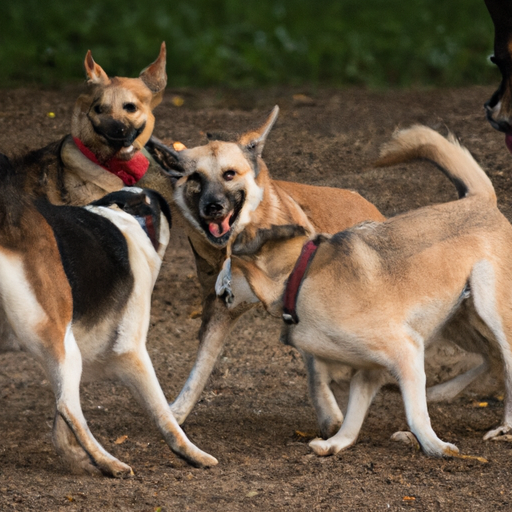“`markdown
How to Help Dogs Get Along
As a caregiver, you know the importance of harmony in your home. You also know that sometimes, our furry friends can have a hard time getting along. This guide will help you facilitate better relationships between your dogs.
Understanding Dog Behavior
To help dogs get along, it’s important to first understand their behaviors. Dogs, like humans, have unique personalities and communication styles. They express themselves through body language, vocalizations, and even scent.
- Tail wagging can signify happiness, but it can also indicate nervousness or aggression.
- Growling can be a warning sign, but it can also be a playful communication.
- Sniffing is often a way for dogs to gather information about each other.
Understanding these behaviors can help you intervene appropriately when tensions rise.
Introducing Dogs to Each Other
Proper introductions can set the tone for the dogs’ relationship.
- Choose neutral territory for the first meeting.
- Keep the dogs on leashes initially, but try to keep the leashes loose to prevent tension.
- Allow the dogs to approach each other in their own time.
Creating a Positive Environment
Creating a positive environment at home can prevent conflict and promote harmony.
- Establish Boundaries: Clearly define each dog’s space.
- Equal Treatment: Avoid favoritism.
- Exercise: Regular physical activity can reduce tension.
| Dog 1 | Dog 2 | |
|---|---|---|
| Bed | Yes | Yes |
| Toys | No | Yes |
| Food Bowl | Yes | Yes |
Training and Socialization
Training and socialization play crucial roles in helping dogs get along.
- Obedience Training: Teach your dogs basic commands like “sit,” “stay,” and “leave it.”
- Socialization: Expose your dogs to a variety of experiences and other animals.
When to Seek Professional Help
If your dogs continue to fight despite your best efforts, it may be time to seek professional help. A professional dog trainer or animal behaviorist can provide tailored strategies to improve the relationship between your dogs.
FAQs
Q: Can old dogs get along with new dogs?
A: Yes, with proper introductions and patience, old dogs can get along with new dogs.
Q: What if my dogs fight over food?
A: Try feeding them separately. If the problem persists, consider consulting a professional.
Q: How long will it take for my dogs to get along?
A: It varies. Some dogs become friends quickly, while others may take weeks or even months. Be patient and persistent.
Q: How can I tell if my dogs’ play fighting is becoming real fighting?
A: Look for signs of aggression such as stiff body language, prolonged growling, or one dog always being the “loser.”
Q: Should I punish my dogs for fighting?
A: Punishment can escalate the situation. Instead, try to calmly separate and distract them.
“`



